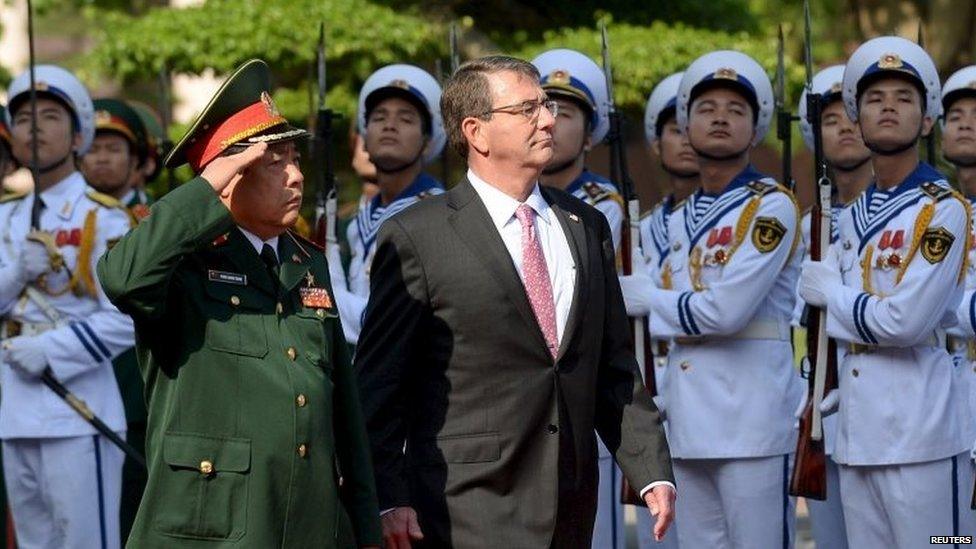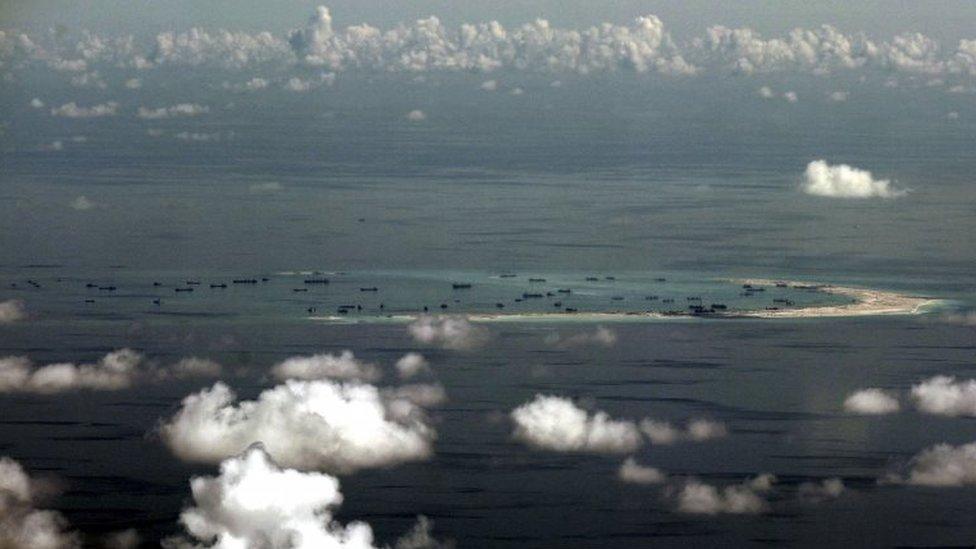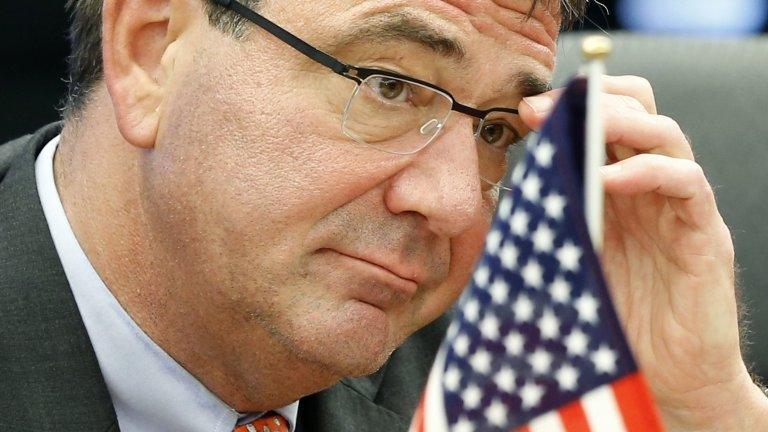Ashton Carter seeks calmer waters in South China Sea
- Published
- comments

China's recent expansion in the South China Sea has drawn former enemies - the US and Vietnam - closer together
There is a delicious irony about a US defence secretary admiring the ranks of the Vietnamese military. Forty years after America suffered a humiliating defeat at the hands of the Vietcong, Ashton Carter was here to offer support to the former enemy.
And as is so often the case in global affairs, it is a friendship forged by a common foe.
I caught up with Ashton Carter in Haiphong - a naval port close to Vietnam's border with China. It is China's recent aggressive activities in the South China Sea, Mr Carter suggested, that have prompted Asian countries like Vietnam to seek closer ties with the US. Those countries, he said, are now looking to the US for peace and stability and an emphasis on diplomacy, not "force or coercion".
Ashton Carter said the US was not looking to militarise the situation in Asia, but that "nothing" would stop its operations in the region
It's a group of tiny specks of land which are causing large amounts of tension here at the moment. Regional powers have been building new mini islands out of the reefs of the Spratly Islands and then claiming them for their own. Several countries are doing it, including Vietnam and the Philippines, but China is building faster and more aggressively than anyone else and has recently put military hardware and a runway on reclaimed land.
The US has called on all the re-claimers to stop their activities but, in unusually blunt language, Mr Carter has singled out China. He says Beijing is undermining regional security.
So what's the US going to do about it, beyond tough talk, I asked him. Nothing China does will stop US military operations, he said. The US will continue to fly and sail in the Pacific.

The Chinese military has recently begun building up a reef near the Spratly Islands in the South China Sea
And if China ignores Washington's demands and continues reclaiming land as it has been doing, will the US do more, I wondered? The short answer is no.
Mr Cater said the US would continue to play a pivotal role in Asia, as it has done since World War Two.
"We're not looking to militarise the situation, or escalate the situation," Mr Carter insisted. "It's a system that's worked well for 70 years, we've got to keep a good thing going out here."
On the Middle East, Mr Carter was similarly reluctant to suggest a broader US military role.
After the fall of Ramadi this month, the defence secretary was scathing about Iraqi forces, saying they lacked the will to fight.
Now Mr Carter has asked his team of Middle East experts to go away and think of new ideas for defeating Islamic State.
The US can train and equip better, he said, but the new plans won't include a big American ground force or a fresh occupation.
Mr Carter said the US can defeat IS but it can't keep them defeated - that depends on the people who live there.
- Published29 May 2015
- Published2 December 2014
